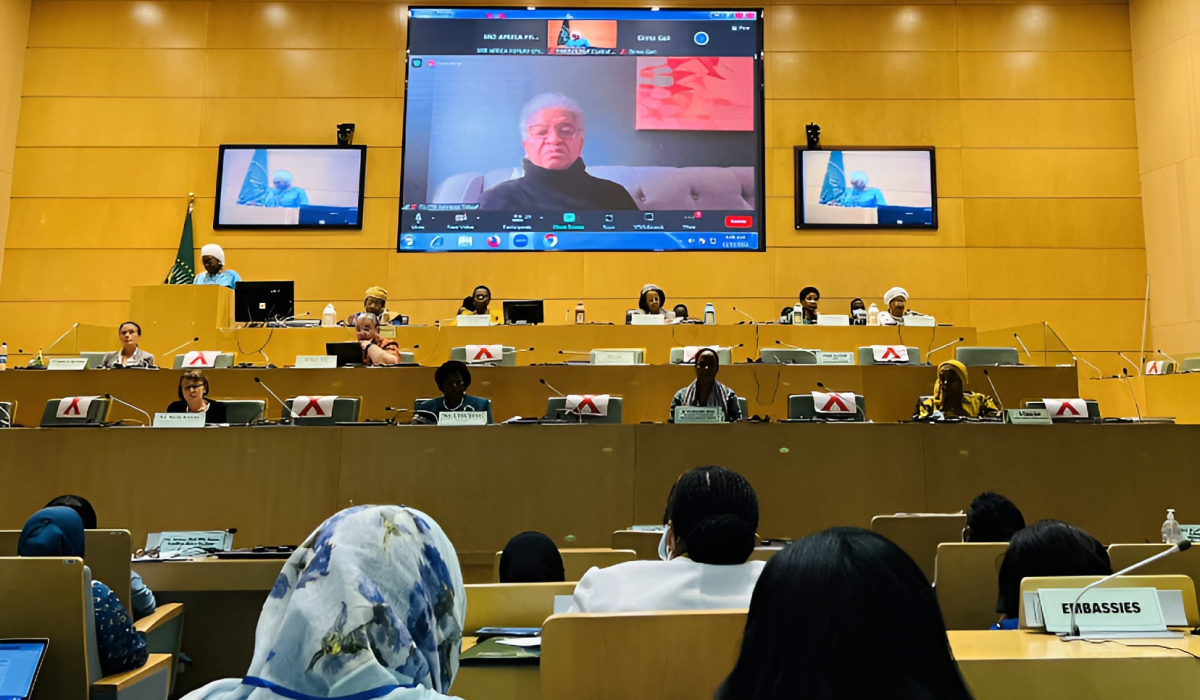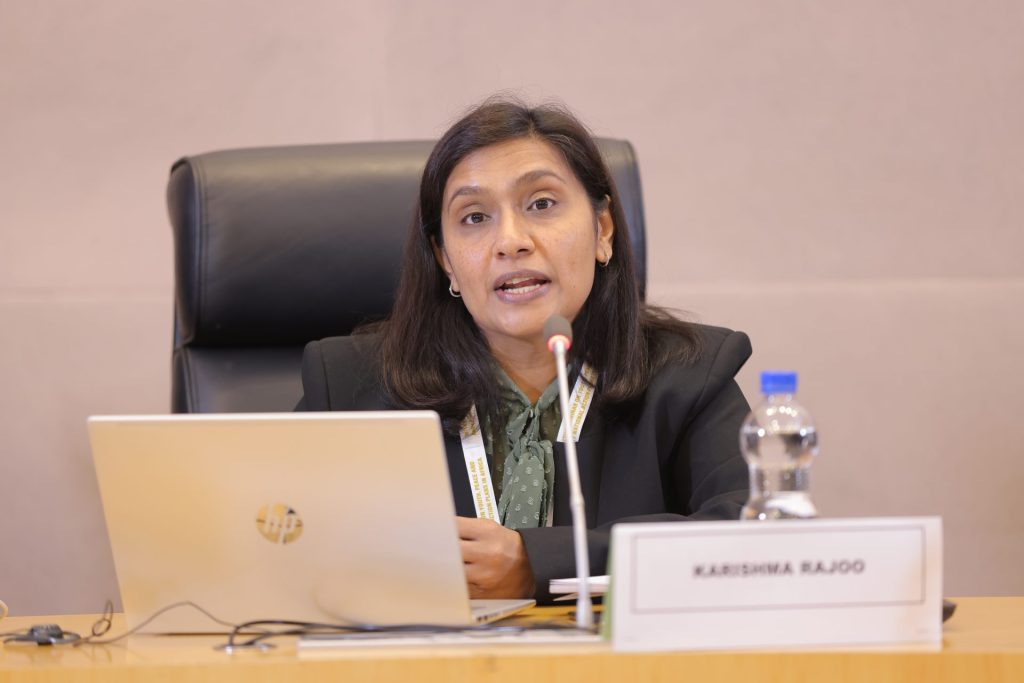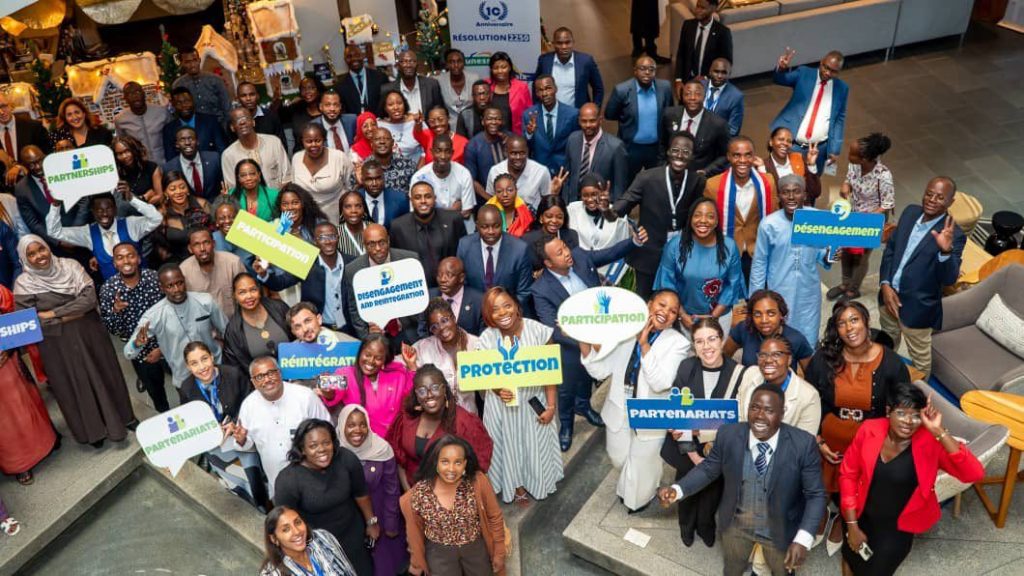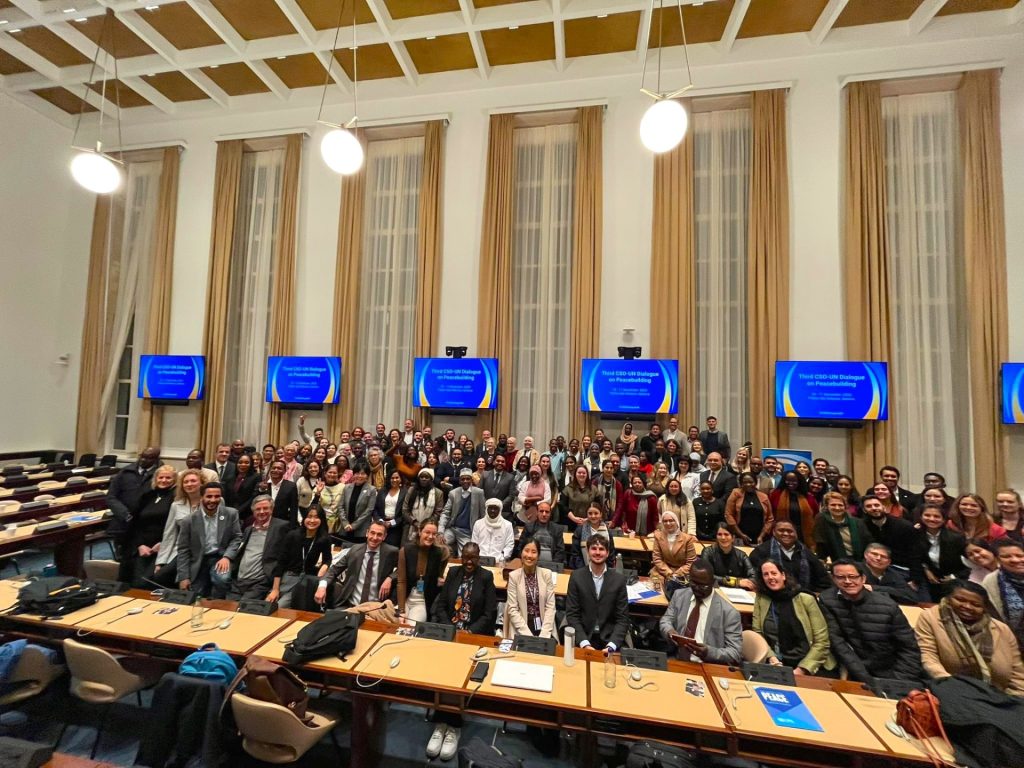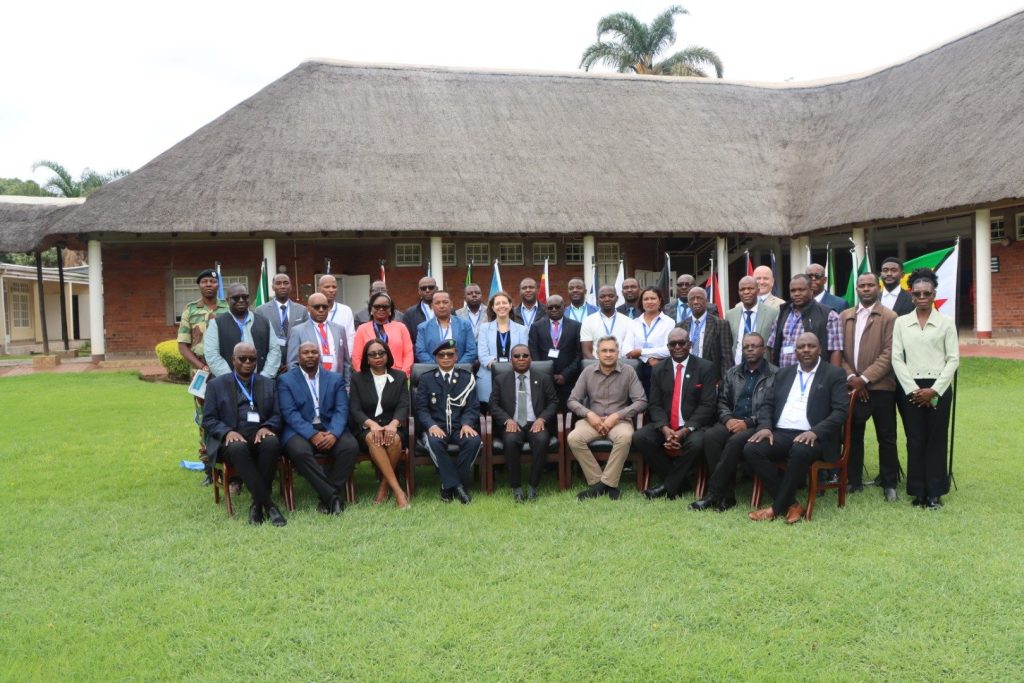ACCORD contributed to the African Union (AU) Office of the Special Envoy on Women , Peace and Security (WPS) Third Africa Forum on WPS under the theme “Leveraging on Women, Peace and Security Monitoring to Enhance Women’s Participation and Leadership in Peace Processes in Africa,”. The forum took place in Addis Ababa, Ethiopia from 14-15 December 2022. Convened by the African Union Special Envoy on WPS Mme Bineta Diop, under the leadership of H.E. Sahle-Work Zewde, President of Ethiopia, the forum served to assess the progress made by AU Member States and regional organizations in delivering existing commitments on WPS using the Continental Results Framework (CRF), a tool developed by AU for monitoring and reporting on the implementation of the WPS agenda.
H.E. Sahle-Work Zewde, championed the Forum, in her opening remarks, she shared that “There is no special peace and security for women only or by women only. Our struggle is for women to have their righteous place in peace processes, mediators, negotiators, and implementation. Women are most of the time seen as victims and victims they are, but they are not just lamenting, they are agents of peace, mediators, and negotiators. Without their perspective, we cannot expect a lasting peace”. The Annual Africa Forum on WPS acknowledged the diversity and common objective of advancing the WPS agenda and silencing the guns in Africa towards the attainment of Agenda 2063.
Several high-level speakers participated in the event, including; H.E. Ellen Johnson Sirleaf, former President of Liberia; H.E. Dr. Joyce Banda, former President of Malawi; H.E. Catherine Samba Panza, former President of the Central African Republic; H.E. Phumzile Mlambo-Ngcuka, former Vice President of South Africa and former Executive Director of UN Women; Madame Hanna Serwaa Tetteh, the UN Special Envoy for the Horn of Africa; Ambassador Liberata Mulamula, former Executive Secretary of the International Conference of the Great Lakes Region (ICGLR); Madame Betty Bigombe, former Mediator in the Northern Uganda conflict, and currently the Ambassador of the Republic of Uganda to Malaysia and; Honourable Justice Effie, Owuor, the first female judge in Kenya and Member of the AU Panel of the Wise. In addition, the Forum brought together women peacebuilders and national WPS focal points from across the continent.
The participants illustrated key lessons on the role that women are playing in the mitigation of conflict on the continent, they further highlighted three areas of concern in the WPS agenda which include, the gendered and disproportionate impact of conflict on women and girls, including forced displacement, Sexual and Gender-Based Violence (SGBV), forced displacement, amplified humanitarian situations, and the continued threats to women peacebuilders and human rights defenders. Secondly, efforts to silence the guns in Africa remain impeded by the underlying drivers of conflict, including governance challenges, unemployment, economic vulnerability, poverty, inequality, and the exclusion of women in decision-making. Lastly, the vulnerability of women and girls in Africa has exacerbated by the triple threats, Covid-19 pandemic, climate change, and the conflict situation in Ukraine. Following a very fruitful discussion, a document of outcomes was drafted by the participants, where they call upon the African Union, the Peace, and Security Council (PSC), and AU Member States to redouble their commitment to fully implement and advance the WPS Agenda.
ACCORD’s Women Peace and Security Advisor, Ms. Pravina Makan-Lakha facilitated one of the key sessions on Women’s Right Defenders in Conflict Zones. The session discussed the risks and challenges faced by women’s rights defenders in conflict situations with a view to identifying strategies for enhancing the protection of women’s rights defenders, politicians, and peacebuilders and making recommendations for strengthening institutional protection mechanisms. In her opening remarks, she shared that ‘peace at the local level means different things to different people. Setting indicators without understanding the context and realities on the ground will result in us using a one-size fits all approach to measuring the WPS progress’.

